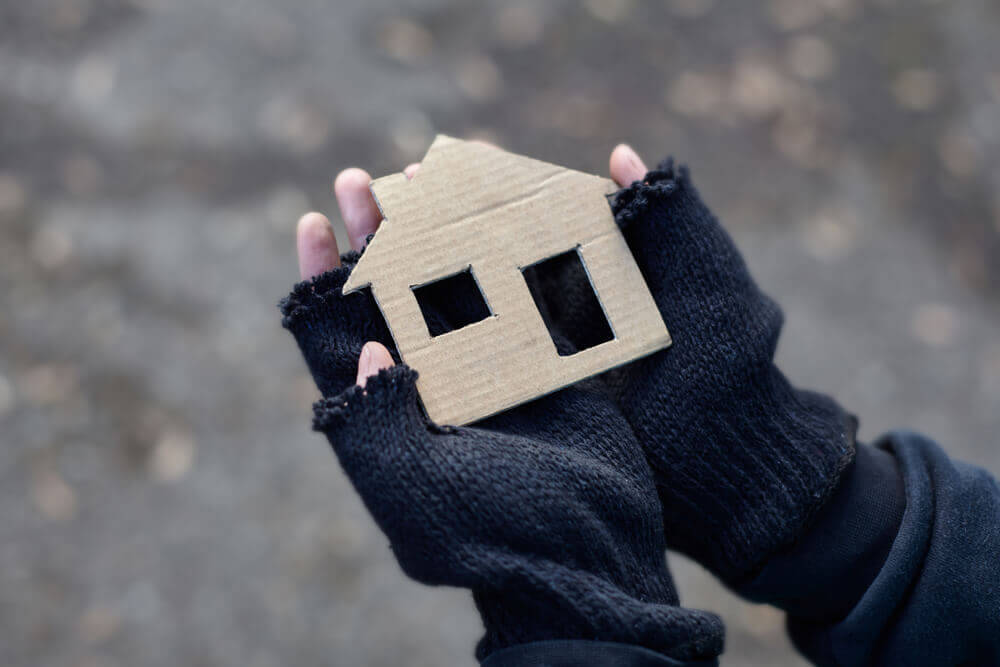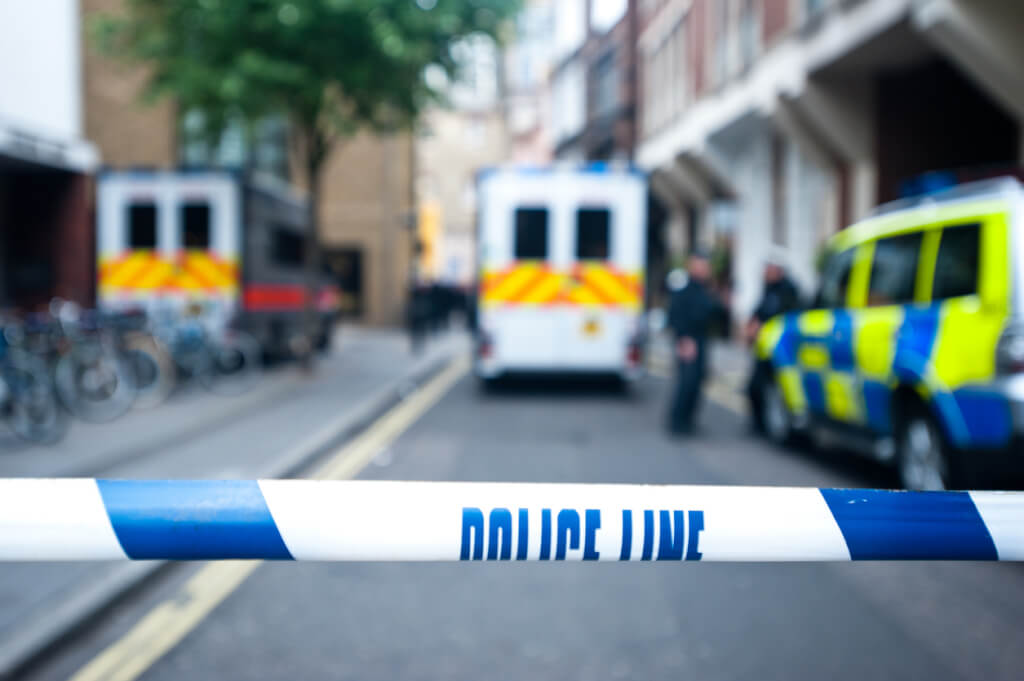'This is the Wild West': what hundreds of homeless people have turned the Upper West Side into
'07.08.2020'
Vita Popova
Hundreds of homeless people have flooded the Upper West Side, turning this quarter into a "real Wild West." Locals compare the situation here with what happened in the city in the 1970s. Many families are moving out or are considering moving. About what led to such consequences, and how the authorities comment on it, the newspaper writes New York Post.

Homeless in hotels
At least three hotels located on the Upper West Side were homeless during the pandemic. New York authorities made this decision in order to protect them from infection in overcrowded city shelters.
However, such good intentions have led to the fact that now the residents of the quarter are forced to share the territory with the homeless, among whom there are even people convicted of sexual crimes. “Among those staying at the luxurious Belleclaire Hotel on Broadway or at the more modest Lucerne Hotel are the mentally ill, drug addicts, and sex offenders,” the source notes.
At least 10 people accused of sex crimes are staying at the Belleclaire Hotel, located just one block from PS 87 William Sherman School.
Nanny Michele McDowall, 39, said she no longer felt safe when she was outside. Recently, when she was walking with her child in Riverside Park, homeless people offered her crack, a strong synthetic drug. "Do you want to buy some crack?" The homeless shouted to her as she passed. A two-year-old girl in a stroller got scared and cried.
Before the pandemic, homeless people spent the night in overcrowded city shelters. But then the authorities decided to resettle them to hotels - for their own safety in connection with the pandemic. “To defuse this ticking time bomb, we have carried out a massive emergency relocation of people from shelters that have accumulated throughout the city - more than 10 people in about eight weeks,” said Stephen Banks, Commissioner for the Homelessness Department, on August 6.
However, a source associated with the New York Hotels Association assures that a new bomb is now ticking in three hotels. These are three of 139 hotels used to accommodate the homeless in the city.
Hundreds of millions of dollars are being spent on resettlement, he said. 75% of these are paid by FEMA and 25% by the city, the breakdown is confirmed by city officials. “The contract is short-term and will last until October, but will most likely be renewed,” the source said.
The Lucerne Hotel on the Upper West Side has also been converted into a "temporary" homeless shelter.
One local community councilor, referring to the influx of homeless people, called DHS (Department of Homeland Security) a "fraudulent agency." He reported that the department did not provide any information about this resettlement.
A board member who asked not to be named said the city pays hotels $ 175 a day for a homeless person or "$ 350 a day for two guys in a room." “This is a lot of money,” he stressed, and added: “It looks like the 1970s. Everyone who can move out is leaving. "
When asked about funding and the number of homeless people, a spokesperson for the Department of Homeless Affairs replied, "Apply for an entry permit."
“They do not give us information in real time,” a representative of the city control service says when asking for such data.
The residents of the quarter are scared
Local residents, meanwhile, have created a Facebook group in which they exchange photos of homeless people relieving themselves in the middle of the street and lying on the asphalt next to hotels. “Our community is scared, angry and outraged,” said one of the organizers of the 1700-member group, Dr. Megan Martin.
Last week, a group of nearly a dozen local rabbis asked to schedule a meeting with the mayor to see if anything could be done. So far, said one of the rabbis, they have not received any response.
And the parent committee of the neighboring school PS 87 on Monday, August 3, sent a letter to the parents of the pupils asking them to involve local officials in resolving the situation.
Parents are most concerned about sex offenders - 10 of them have been living in Belleclaire since Aug. 6, according to the state's sex offender registry. This hotel is located just one block from PS 87.
These criminals include 44-year-old Luis Martin, who stabbed and raped a woman in 1995 and was sentenced to 12 years in prison.
There are also four perpetrators whose victims were children: Ronald Butler, 62, convicted in June 2013 of raping a 16-year-old girl; Eddie Daniel, 59, convicted of abusing a 10-year-old girl in 2011; Jonathan Evans, 29, convicted of abusing a 6-year-old girl; and Michael Hughes, 55, convicted of possession of child pornography in 2007.
On the subject: 'Scene from the zombie movie': a camp for the homeless appears in Manhattan
Mariane Dabo, the mother of a 10-year-old girl, said she was afraid to leave her daughter even for a few minutes. “It's scary,” the woman said after she learned that criminals convicted of child abuse now live in their neighborhood.
Since the homeless have temporarily settled on the Upper West Side, locals have increasingly witnessed their unceremonious activities, including fights and drug use on the street.
Drugs, violence and robbery
Since last week, about 300 homeless drug addicts have been living at the Lucerne Hotel. One of the residents, who asked not to be named, confirmed the information that these people "sniff, use crack, K2 and much more."
They also harass local people, especially women. “How are you, beauty? I feel good, - shouted one of the homeless, standing in the street. "How do you feel, baby?"
Homeless even offered to sell the K2 drug to a reporter for the New York Post, and when the offer was rejected, he reasonably remarked that "it's not for everyone." Tramps in nearby parks leave behind used syringes.
Homeless people, among other things, arrange loud showdowns, thereby scaring away customers of cafes and restaurants. Coppola restaurant manager Mariano Ouatu, 49, says: “They go to the tables asking for money. They get drunk and start fighting. " And even if you drive away one or two homeless people, "there are already 20 around you." The man says that the homeless have taken over Broadway. They are everywhere: in stores - buying alcoholic beverages, and then on benches - drinking alcohol.
Finally, speaking of Lucerne, he remarked: "Great hotel, I can't believe it."
Newsstand owner Malik Faheem, 54, complained that he was robbed three times. “They usually steal small things like candy,” he said, adding that he has to suffer losses to avoid a fight. “They are not very peaceful,” says Fahim, nodding in the direction of the imposing, nearly two-meter-tall homeless man who harass women. "Give me $ 2, I'll go have breakfast," said the homeless man. “And this is not a request,” says Fahim. - He pushes you. Ladies are especially scared. They give him money right away. "
“I called 911 so many times. So many times! The cops don't do anything. Progress? Zero ”, - the owner of the newsstand is indignant.
"This is the real Wild West," complained the parent from the Upper West Side of the World Gross (Mira Gross). She said she knows about 20 families who have moved from here or are considering moving. "
One of her children recently asked, "Mommy, can we sleep outside too?" Mira shared her thoughts: “There is an opinion that we are back in the notorious 70s. But those who were here in the 1970s say it is much worse than it was then. "
What officials say
State law allows a sex offender to live anywhere as long as his current address is listed on the registry. Only criminals who are still on parole are prohibited from living within 300 meters of schools. “These places are not inhabited by persons who have committed sex offenses limited to their place of residence. Anyone who lives in these places is allowed to live there in accordance with state law, ”explained a DHS representative.
On the subject: Homeless on the streets of New York: the extent and causes of the problem
“The City of New York places all clients in appropriate locations under state law - and we provide shelter for New Yorkers experiencing homelessness, regardless of their background,” he added. “New Yorkers experiencing homelessness are our neighbors. And the thought that in some areas they are not accepted for whatever reason is an insult. We do not discriminate against people based on their past experience or background, and we do not create closed communities in our city - we give them a helping hand, no matter what. "
The DHS spokesperson concluded: “Today, more than ever, these services and support, this compassion and humanity, are needed in all communities across the five boroughs. And our commitment to providing them to those in need must be unwavering. "
Earlier it was reported that New York will accommodate about 2000 of its homeless residents in hotel rooms... This should prevent the spread of the coronavirus.







